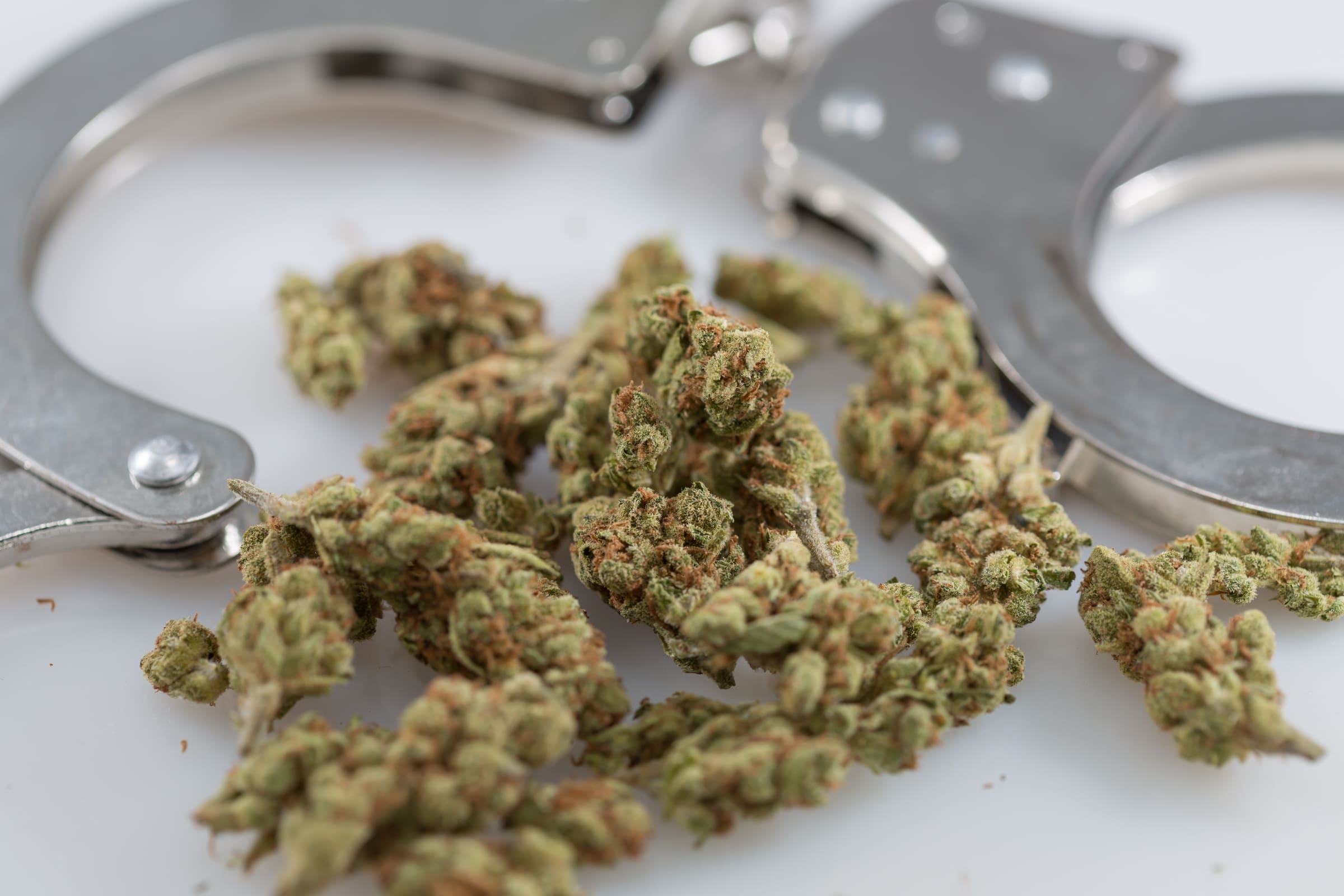Politics
Biden Must Support Fully Descheduling Marijuana To Finally End Unjust Criminalization, Former Prisoner Says (Op-Ed)

“To truly address the inequities caused by marijuana prohibition, we must go beyond rescheduling and fully deschedule marijuana as well as pursue comprehensive criminal justice reform.”
By Weldon Angelos, Music Producer and Marijuana Reform Advocate
As someone who had their career and personal life derailed by an unjust marijuana conviction, I applaud any steps taken towards rectifying the injustices inflicted upon countless individuals due to marijuana prohibition.
In 2004, I was sentenced to 55 years in federal prison for marijuana-related offenses. I was released on May 31, 2016, after a federal court granted me a reduction in sentence, and in 2020 I was pardoned by President Donald Trump.
Because I know firsthand the injustices and pain that stem from marijuana criminalization, I applauded President Joe Biden’s recent marijuana clemencies, despite knowing much more could be done.
But I am concerned to hear that the Biden administration may recommend that marijuana be moved to Schedule III of the Controlled Substances Act (CSA). If this is true, I can say it falls woefully short of the meaningful reform our nation needs and the reforms promised by President Biden. As long as marijuana remains anywhere in the CSA, it will remain federally criminalized in most instances. To rectify the harm inflicted by decades of misguided policies, we need to ensure no one else goes to prison for marijuana and prioritize the release and restoration of those who have already suffered the consequences of an unjust system.
While virtually everyone can agree that marijuana has no business being in Schedule I of the CSA—which means the federal government does not recognize any medical benefits from marijuana—rescheduling it fails to acknowledge the urgent need for comprehensive reform that addresses the disproportionate impact of marijuana prohibition on marginalized communities. The War on Drugs, which has unfairly targeted people of color, has caused immeasurable harm to families and communities across America.
President Biden has repeatedly acknowledged the needless educational, employment, and housing barriers that stem from marijuana criminalization as well as racial disparities in arrests, prosecutions, and convictions. Rescheduling marijuana to Schedule III does not seriously begin to address the core issues of criminalization, social inequality and systemic racism that have plagued our society for far too long.
To truly address the inequities caused by marijuana prohibition, we must go beyond rescheduling and fully deschedule marijuana as well as pursue comprehensive criminal justice reform.
Thousands of individuals, disproportionately from marginalized communities, languish in prisons across the country on nonviolent marijuana-related charges. These harsh sentences are a blight on our justice system and have torn families apart. We must prioritize restorative justice measures such as clemency for those still incarcerated federally for marijuana offenses, pardons of past convictions, expungement of past convictions, resentencing of convictions and reinvestment in affected communities to rectify the immense harm caused by criminalization and prohibition.
It is especially disheartening to witness the contrast between those who face incarceration for marijuana offenses and individuals who come from privileged backgrounds. The case of Hunter Biden, President Biden’s son, is illustrative of this disparity.
Hunter Biden, like many others in privileged positions, has admitted to using illegal drugs and illegally possessing firearms (a charge I was sent to prison for), yet has not faced the same consequences as those without the same advantages. This stark contrast exposes the inherent flaws in our criminal justice system, which disproportionately punishes the marginalized and perpetuates cycles of inequality. This is why rescheduling marijuana to Schedule III, without ending pathways for future criminalization that disproportionately impacts disadvantaged people, and without also providing relief to the few thousand people in the federal system and the tens of thousands of people living as second class citizens because of a felony conviction for marijuana, is extremely troubling and problematic.
President Biden promised that he would decriminalize marijuana but he would do the opposite by supporting rescheduling. Rescheduling marijuana instead of descheduling it falls far short of the transformative change we need.
It is time for bold action, visionary leadership, and a commitment to addressing the root causes of injustice perpetrated by marijuana prohibition. It is my sincere hope that President Biden and his administration will recognize the urgency of this issue and seize this opportunity to finally deschedule marijuana.
The time for half-measures is over; it is time to embrace justice, compassion, and true equality for all.
Weldon Angelos is criminal justice reform advocate and founder of The Weldon Project, a non-profit organization committed to securing relief for people who are incarcerated over cannabis. He received a presidential pardon for his own federal marijuana conviction in 2020 after serving 13 years in prison.
Ohio Activists Turn In Signatures To Put Marijuana Legalization On November Ballot




